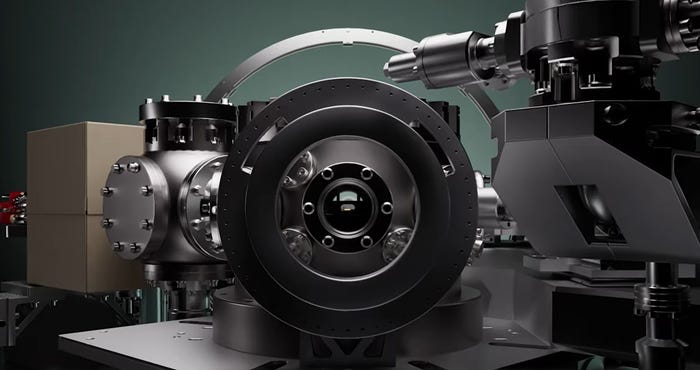
Connects decision-makers and solutions creators to what's next in quantum computing
Navy Tests Quantum Sensing at SeaNavy Tests Quantum Sensing at Sea
Technology provides position, navigation and timing data in GPS-denied environments

U.K. startup Aquark Technologies has successfully demonstrated its cold atom quantum sensing technology aboard a Royal Navy vessel during realistic maneuvers and conditions at sea.
The sea trial, in partnership with the Office of the Chief of Technology Officer (OCTO) for the Royal Navy, took place aboard the coastal patrol vessel HMS Pursuer in the Solent, a major shipping lane between the U.K. mainland and the Isle of Wight.
Quantum sensing can provide position, navigation and timing (PNT) capability in environments where GPS signals are degraded or denied, such as by enemy spoofing or jamming or where its use would disclose a vessel’s location during covert operations.
“Over the next three years, the Royal Navy seeks to accelerate the development of quantum technologies – such as Aquark’s – through funding and sea trials, to secure an opportunity to invest in a non-GPS-based PNT capability and to maintain its global operating advantage,” said OCTO future technology lead commander Matthew Steele.
Quantum technologies have long held the promise of providing PNT services, However, some are very sensitive to noise and motion so cannot be used in demanding military conditions and others are too large to be installed in locations such as a ship where space is at a premium.
Aquark's miniature cold atom systems use a laser-cooling method the company developed, known as supermolasses, that does not need an applied magnetic field, reducing size, weight, power consumption and cost.
Other than defense applications, compact quantum systems could also have applications providing PNT data for energy, critical infrastructure, telecommunication and finance applications.
While Aquark and the Navy considered the trial a success, it highlighted that the magnetic shielding needed more work. The company said feedback would be channeled into improvements to its prototype atomic clock system, AQlock.
“With this latest trial of our technology at sea with the Royal Navy, we are continuing to show the real-life applications of our technology after our successful flight of the first cold atom device on a drone,” said Aquark Technologies co-founder and CEO Andrei Dragomir.
“The completion of this trial marks an encouraging milestone for the future of quantum technologies in fields such as defense and infrastructure. Demonstrating these cold atom systems in real-world environments will drive us towards deployable systems.”
Aquark recently raised $4.3 million in seed funding, with investment led by the NATO Innovation Fund and supported by MBDA, an alliance between aerospace and defense companies Airbus, BAE System and Leonardo.
About the Author
You May Also Like






